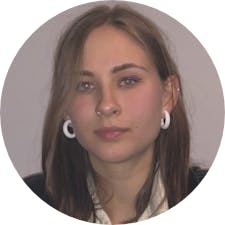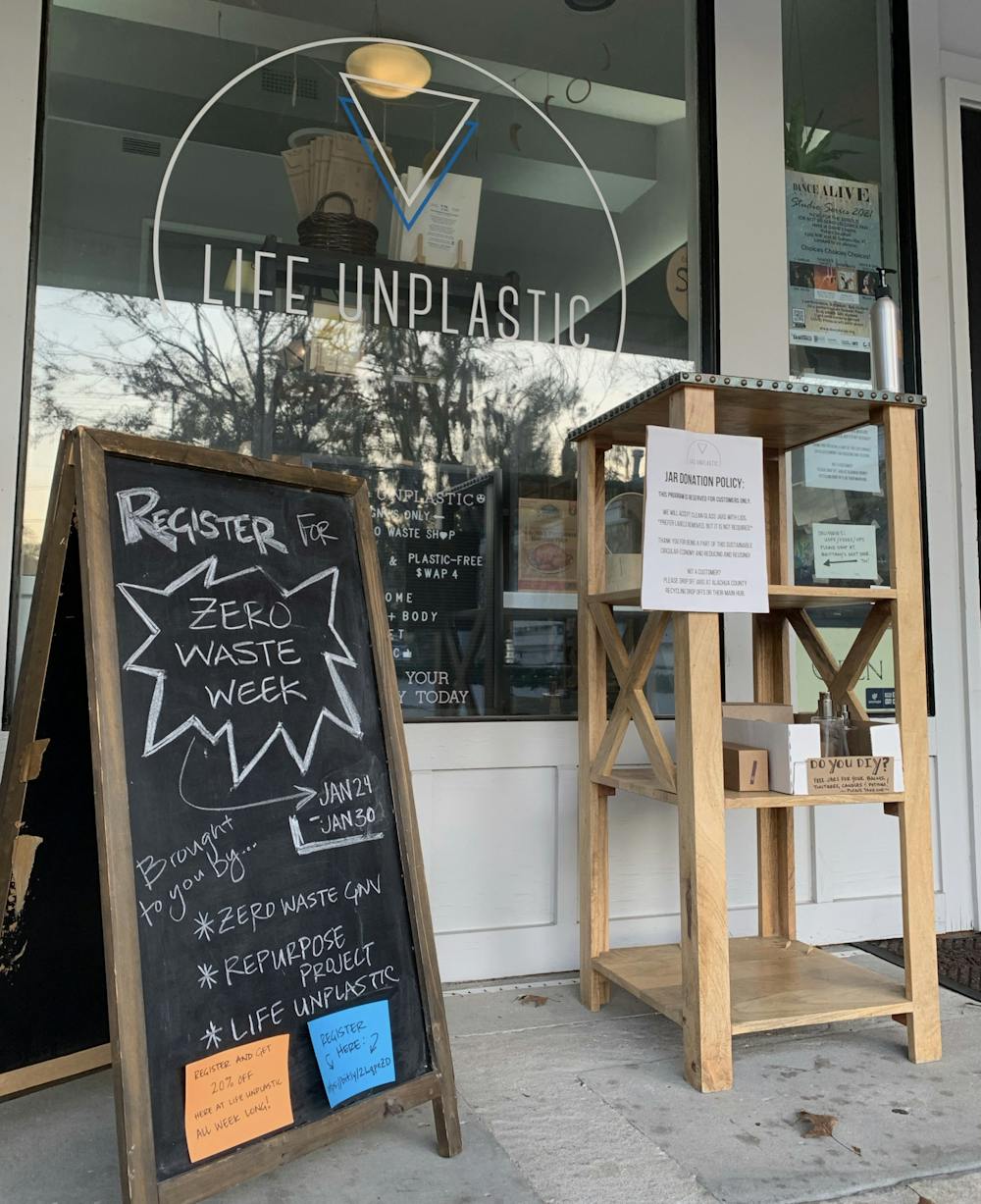No leftovers in Brittany Boyer’s home get thrown away.
Onion skins, turmeric, avocado pits and flowers are the dye for her art, stained onto cotton canvases from The Repurpose Project. The scraps are discarded in the compost setup in her backyard, which is fenced in by reused chicken wire and wood pieces.
Her sustainable lifestyle began on the seven acre farm in Illinois where she was raised. Since she lived an hour from major grocery stores, she learned how to live in amity with the land, eating what it produced and maximizing the resources.
Boyer is one of the 200 people registered for Zero Waste Week. Led by Zero Waste Gainesville, The Repurpose Project and Life Unplastic, the campaign will start Sunday and educate participants about how to produce less waste.
Zero Waste Week was started in 2020 by The Repurpose Project and Zero Waste Gainesville. Amanda Waddle, director of Zero Waste at The Repurpose Project, said there won't be any in-person activities this year due to the pandemic. Instead, each participant will receive daily newsletters with videos, infographics and PowerPoints about reducing waste.
The goal, Waddle said, is to push for a collective effort toward reusing more and creating less waste.
Some virtual activities for the week include a live Zoom presentation on Jan. 26 and a discussion of the film “The Story of Plastic” on Jan. 28. Local thrift stores like The Heart of Gainesville and Flashbacks Recycled Fashions are partnering with the groups’ mission by offering discounts on Jan. 29, since thrift shopping is a form of recycling, Waddle said.
Joy Hughes, the owner of Life Unplastic and a coordinator of this year's Zero Waste Week events, is providing a discount code to her store when people register. Life Unplastic carries eco-friendly cleaning supplies, personal care products and pantry staples without the single-use plastics these items typically come with.
“A lot of what consumers want these days are things that are simply and more locally made,” she said.
Other events for Zero Waste Week include a waste audit, where participants will use data sheets to assess their trash production.
“This is really eye opening to see the resources that you use,” Waddle said. “And from there, we want you to use reusables instead of a single-use item, no matter the material.”
The theme of the week is “Nothing in Nature is Wasted.”
In nature, organic material, which comes from the earth, always returns to it, Waddle said. When a tree branch, for example, falls on the ground, it decomposes and replenishes the soil with its nutrients. But when organic material ends up in a landfill, instead of being composted, the natural process is disrupted, she said.
“Humans have made this system where we need to take our trash somewhere to basically be dealt with,” Waddle said. “So we're really trying to make that connection to going back to nature and thinking of everything as resources.”
With zero waste systems, Waddle said people reuse, recycle and compost all resources, creating a circular system.
“Humans are just another species of animals,” she said. “All animal species use resources on earth to survive, but humans just maybe need to use them in a little bit more responsible way.”
Waddle said she was fascinated with plants and animals from a young age. After she saw the harm trash could do to wildlife, she began studying waste reduction.
“I felt this draw to learn all that I can about it,” she said. “Something inside of me is just telling me that I can be part of the solution, and I just need to help create this groundswell of understanding.”
Those interested in participating in Zero Waste Week can register online at The Repurpose Project or Zero Waste Gainesville.
Contact Katie Delk at kdelk@alligator.org. Follow her on Twitter @katie_delk.

Katie Delk is a sophomore with a journalism major and an anthropology minor. For the Avenue, she writes about music, culture and the environment. When she is not writing, she is outside with the trees, reading a fantasy book or listening to Beach House.





